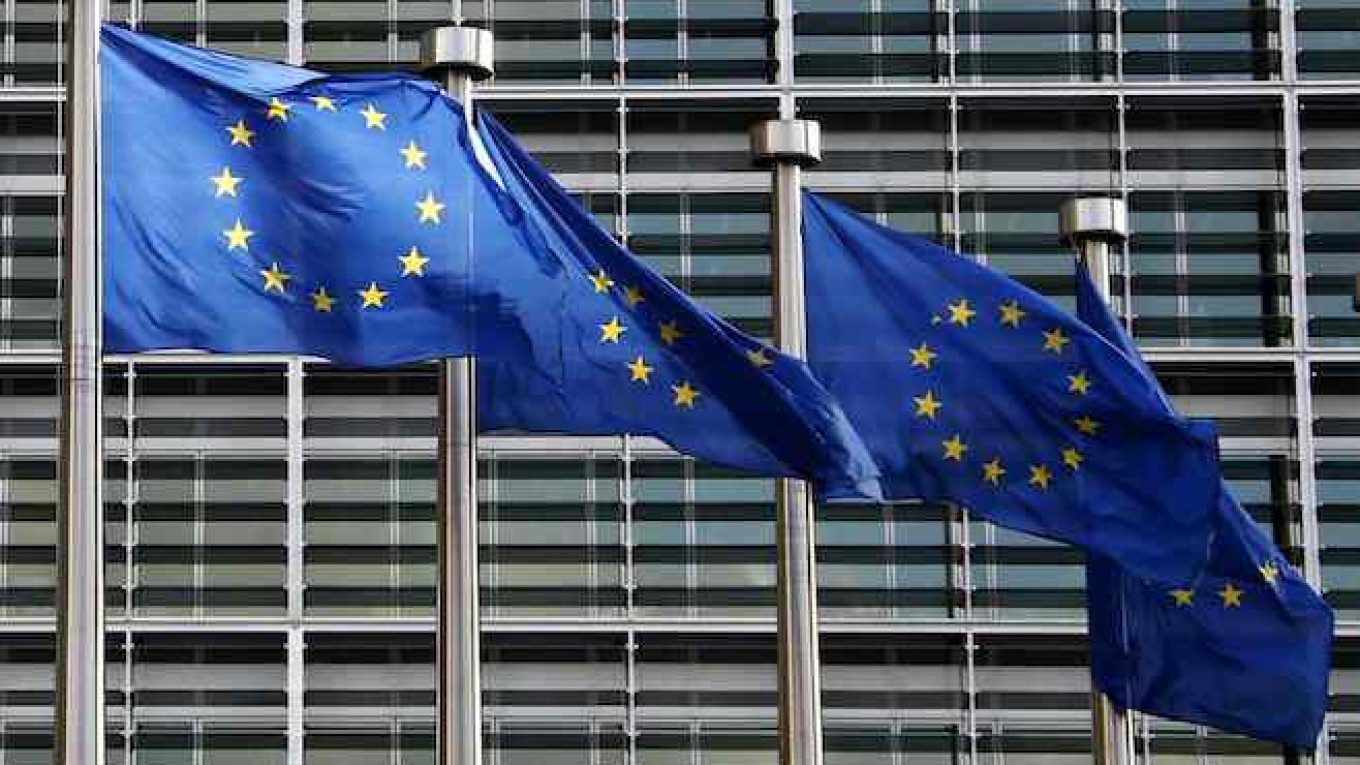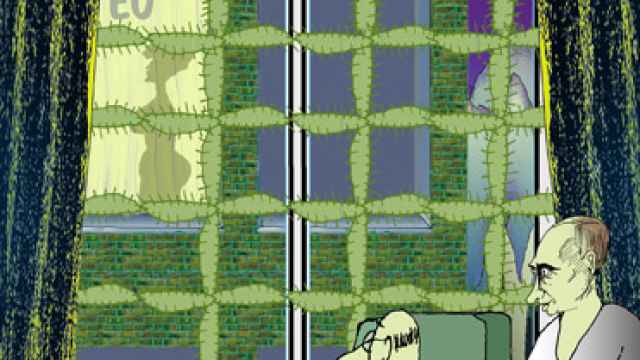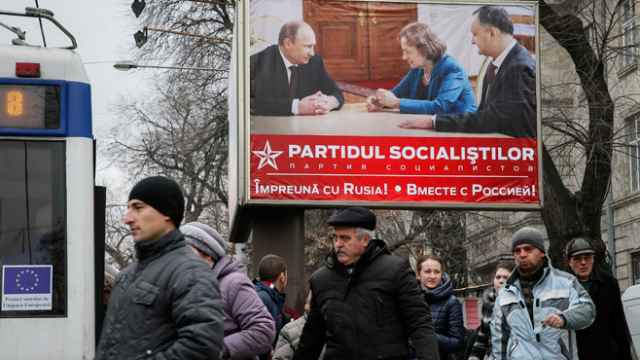A stone's throw from the mounted T-34 Soviet tank in the center of this Moldovan city is an emergency ambulance service set up by Romania, one of several soft power moves to steer its eastern neighbor away from Moscow's orbit.
Wary of Russian intentions after Ukraine lost control of Crimea and much of its east to Russian-backed forces last year, Romania is trying to bring Moldova towards the European Union.
Its sweeteners, the ambulances, as well as offers of cheaper gas supplies and closer trade ties, have been warmly welcomed by impoverished Moldova's two-month-old pro-European government.
Some locals are wary of Romania's intentions, but many are grateful in this corner of Moldova, where villagers trudge along muddy, unpaved roads and western cars like the red, Volkswagen ambulances are novel enough to win salutes from their children.
"People calling 903 for an ambulance ask us to send them the red cars with the red men," said 35-year-old Ion Picalau, a rescue captain with the newly-created ambulance service in Balti, about 60 km east of the Prut river border, who trained for the job for six months in Romania.
Moscow has warned Moldova that its drive for closer ties to Europe could cause it to lose control of Transnistria for good, just as Ukraine lost Crimea, and lead to more costly gas from Russia, its main supplier.
The Romanian government is unapologetic, saying even though it sees Russia as a serious security threat, it will step up a battle that is, for now, economic rather than military.
"[Russia's] main weapon is neither warplanes, nor its tanks or its frigates. It is energy," Prime Minister Victor Ponta said in a televised interview with local media in November. He has vowed to press ahead with a gas pipeline to Moldova.
Among the people of Moldova, divided into several ethnic groups with varying allegiances, Romania's actions have met a mixed reaction, with some seeing them as a bulwark against Russia and others worried Romania may try to swallow Moldova up.
Part of Tsarist Russia for a century, Moldova joined what was known as Greater Romania after the First World War but was annexed by the Soviet Union in 1940.
It is now split between a Romanian-speaking majority and the breakaway region Transnistria, propped up by Russia in one of a series of "frozen conflicts" that have kept separatist regions in several former Soviet republics under Moscow's wing.
NATO's supreme allied commander in Europe, US Air Force Gen Philip Breedlove has said Russian forces could easily annex Transnistria. Moscow has denied any such plans.
Trade, Gas Wars
EU and NATO member Romania championed Moldova signing a trade agreement with the EU in June and, as Russia moved to restrict imports of Moldovan wine, fruit, vegetables and meat, Romania overtook Russia as Moldova's largest trade partner.
Moldovans can now travel visa-free to Europe's Schengen zone and to wean them from Russian gas, Romania has built a 27 mile pipeline across the border, inaugurated last year on the 23rd anniversary of Moldovan independence from the Soviet Union.
The project will initially cover about five percent of Moldova's energy needs, and Romania plans to extend the pipeline to the Moldovan capital Chisinau, offering gas for $263 per 1,000 cubic meters, excluding transport fees which are still under negotiation.
That compares to the Russian price of more than $300.
Moldova's acting Economy Minister Andrian Candu said it was a "key project ... creating a basis for our country's future integration in the European Union's internal market".
Romania funded about three-quarters of the initial pipeline's 26 million euro cost and is expected to fund the extension while Chisinau is seeking international financing for the pipeline. Critics note that gas has yet to flow and question whether the line to Chisinau will ever be built.
Candu estimated the extension's overall joint costs at 200 million euro, with 120 million to be invested by Romania.
Moldova's Balancing Act
Joining the EU could be a long drawn out process. The new European Commission team says it does not envisage new members within the next five years. For Moldova to reach candidate status it would need to meet criteria on human rights, the rule of law and be seen as a functioning market economy.
Petr Neikovcchen, 51, town hall official in the Gagauz region in southern Moldova, says minorities such as Bulgarians, Gagauz, Ukrainians, Russians and Bulgarians felt threatened by growing ties with Romania and were lukewarm about the EU.
"We Bulgarians and Gagauz consider integration with the EU a complicated process that will take decades, whereas cooperation with Russia is a reality, achievable tomorrow," he said.
A Message from The Moscow Times:
Dear readers,
We are facing unprecedented challenges. Russia's Prosecutor General's Office has designated The Moscow Times as an "undesirable" organization, criminalizing our work and putting our staff at risk of prosecution. This follows our earlier unjust labeling as a "foreign agent."
These actions are direct attempts to silence independent journalism in Russia. The authorities claim our work "discredits the decisions of the Russian leadership." We see things differently: we strive to provide accurate, unbiased reporting on Russia.
We, the journalists of The Moscow Times, refuse to be silenced. But to continue our work, we need your help.
Your support, no matter how small, makes a world of difference. If you can, please support us monthly starting from just $2. It's quick to set up, and every contribution makes a significant impact.
By supporting The Moscow Times, you're defending open, independent journalism in the face of repression. Thank you for standing with us.
Remind me later.






